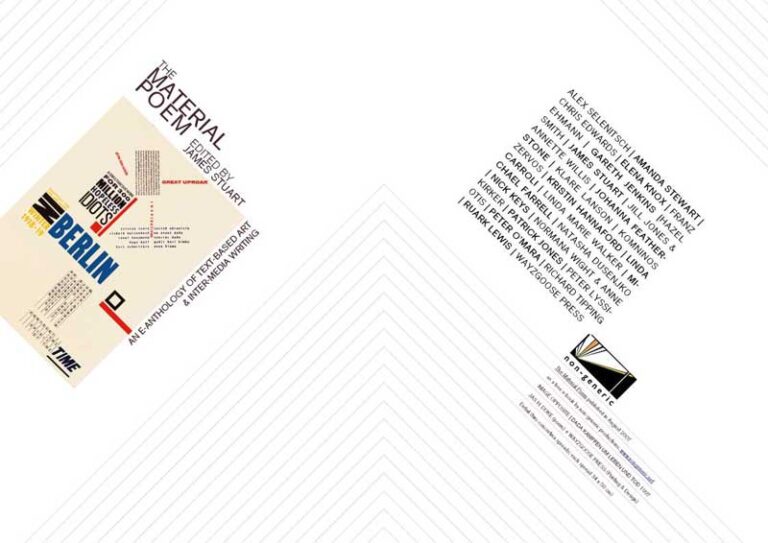White Tiger: How I got my Korean name

"Hear me roar ..."





The Material Poem is a new e-anthology edited by James Stuart and published by non-generic productions. The blurb on the site says: The Material Poem features the work of some 28 Australian poets, artists and critics, all of whom are…

said let’s buy tulips because you were homesick twenty-four hour florist late-night emergency the tulips sat inside a cool store freezer still wet & trembling fragile as a whispered wish (we said let’s buy some tulips today there’s more sun…